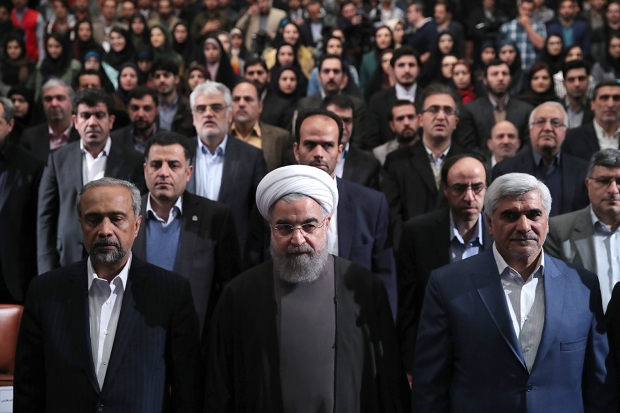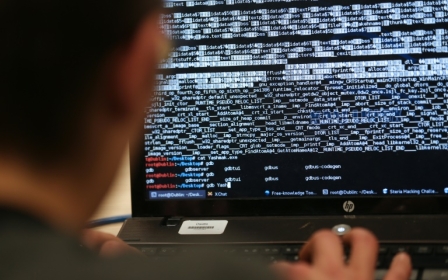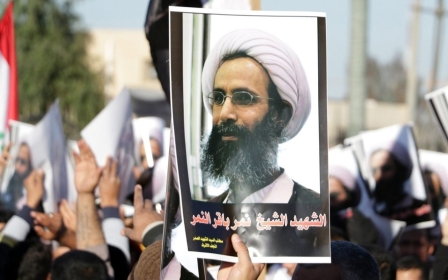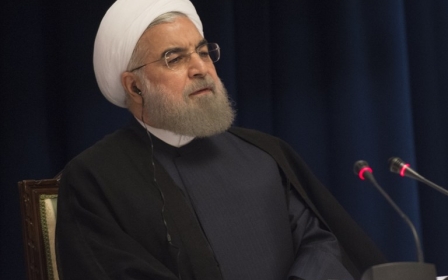Why would Rouhani cyber-attack the Saudis? There's far too much at stake
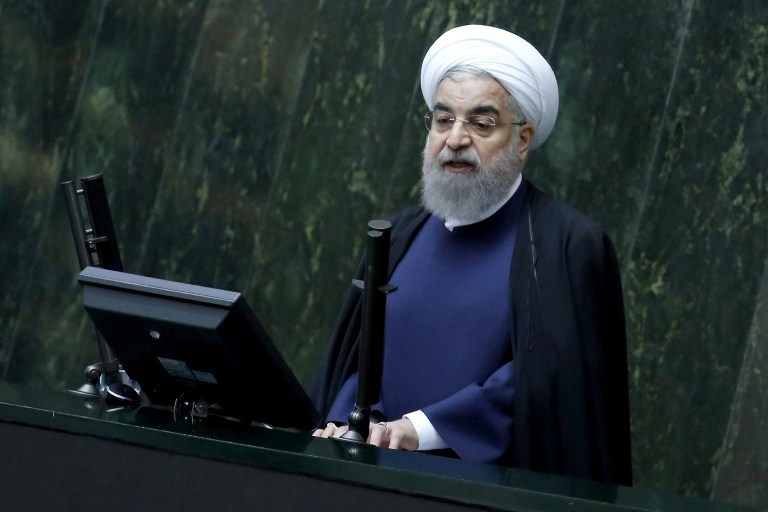
This month, Bloomberg reported that state-sponsored hackers had conducted a "series of destructive attacks" on Saudi Arabia over the last two weeks, erasing data and wreaking havoc at the agency running the country’s airports, and hitting five additional targets.
According to the report, "thousands of computers were destroyed at the headquarters of Saudi’s General Authority of Civil Aviation, erasing critical data and bringing operations there to a halt for several days".
A false-flag operation by a foreign country aiming to escalate tensions between Iran and Saudi Arabia
Several US internet security companies later suggested the attacks were carried out by hackers using a virus called "Shamoon", which has been linked to the Iranian government.
Two theories may explain the attacks.
First, they may signify a false-flag operation by a foreign country aiming to escalate tensions between Iran and Saudi Arabia and, by association, the United States.
One cannot discount the possibility of Israel’s involvement because Israel would largely benefit from the incident’s aftermath.
A director at the Centre for Strategic and International Studies in Washington maintained that "anyone who did this attack knows it has implications for the nuclear deal [between Iran and the world powers]".
Other states in play
Meanwhile, it is important to remember that Israel has a history of hacking operations.
In 2010, the Israelis together with the Americans collaborated in an attack on Iran’s nuclear enrichment plant using the Stuxnet virus.
Second, according to early reports from a Saudi probe - which obviously can be biased - "digital evidence" suggests the attacks emanated from Iran.
Rogue radical elements in the Iranian government could have intentionally acted to create a foreign policy crisis for the Rouhani administration
But Iran's president, Hassan Rouhani, seeks de-escalation in the international relations arena. He relies on the benefits of sanctions relief but requires a peaceful environment to bring Iran out of international economic obscurity, attract foreign investment and end the severe economic recession engulfing the country.
The actualisation of the Iran nuclear deal between Iran and the world powers, the so-called Joint Comprehensive Plan of Action (JCPOA), strengthened Rouhani’s and the moderate current’s position as a whole in Iran.
To undermine the moderates’ success, rogue radical elements in the Iranian government could have intentionally acted to create a foreign policy crisis for the Rouhani administration.
Entangling Rouhani and his administration in a foreign policy crisis would likely steal the chances of reinvigorating the economy from his moderate administration, and decrease his chances of re-election as president in May.
The Shamoon virus was the same that devastated Saudi oil company Aramco in 2012. According to the report, Shamoon "overwrites files and renders the infected computers inoperable by destroying the master boot record".
It spreads quickly "throughout a network, causing destruction like the digital version of a wildfire".
A secret document from April 2013, written by the US's National Security Agency and revealed by the whistleblower Edward Snowden, pointed the finger directly at Iran.
It said: "Iran’s destructive cyber attack against Saudi Aramco in August 2012, during which data was destroyed on tens of thousands of computers, was the first such attack NSA has observed from this adversary.
It spreads quickly "throughout a network, causing destruction like the digital version of a wildfire"
"Iran, having been a victim of a similar cyber attack against its own oil industry in April 2012, has demonstrated a clear ability to learn from the capabilities and actions of others."
In the past, there have been other suspicious incidents aimed at sabotaging Iran’s foreign relations.
The tale of the Karine A
My co-authored book, Iran and The United States: An Insider’s View on the Failed Past and the Road to Peace, detailed numerous spoilers - be it rogue elements inside Iran or Israel - have been principal players in blocking Iranian moderates’ diplomatic efforts to improve the country’s relations with the world.
The Karine A Affair is a case in point.
In 2001, there began serious behind-the-scenes negotiations between the Iranian and US governments, seeking avenues of co-operation on Afghanistan.
Ryan Crocker, an American diplomat who had lived in Iran before and spoke Farsi, led the US team in its negotiations.
"This was an unprecedented period since the revolution of, again, a US- Iranian dialogue on a particular issue where we very much had common interest and common cause," says Crocker.
The co-operation between the two states peaked during the overthrow of the Taliban - the US used the Northern Alliance, a group equipped and financed by Iran, in the war.
The co-operation between the two states peaked during the overthrow of the Taliban - the US used the Northern Alliance, a group equipped and financed by Iran, in the war
In later efforts for establishing Afghanistan's new government, Iran’s contribution was crucial.
James Dobbins, the leader of the US delegation in Afghanistan, elaborates on the role of the Javad Zarif, then the deputy foreign minister of Iran, as follows: "Zarif had achieved the final breakthrough, without which the Karzai government might never have been formed."
Hamid Karzai was the Americans’ favourite candidate to lead post-Taliban Afghanistan.
As the reformist Iranian president, Mohammad Khatami, provided every effort to improve US-Iran relations, suddenly on January 4, 2002, Iran was accused of complicity with smuggling a notable consignment of weapons to the Palestinian Authority.
The news took the headlines by storm.
According to a January 4, 2002 statement by the Israeli army's Shaul Mofaz, "With the break of dawn on Thursday, January 3, 2002, IDF forces took control of the ship Karine A, which was carrying about 50 tonnes of warfare and sabotage equipment, meant to be smuggled into the Palestinian Authority area."
The problem, however, was that the relationships between Iran and the Palestinian Authority were more than cold. They were unequivocally strained.
Yasser Arafat supported Iraq during its eight-year war with Iran in the 1980s. Later, when he signed the Oslo Accords with Israel in 1993, Iran froze all support to the Arafat's Palestine Liberation Organisation and accused it of treason.
The Iranian reformist administration denied the accusations. Two weeks after the Karine A was impounded, a Jerusalem Post article declared: "Some Israeli pundits warn that denials cannot be dismissed offhand, because the evidence is simply too shaky."
Timing of the Karine A could not have been better for anyone who sought the dissolution of co-operation between Iran and the US.
The Karine A affair essentially disintegrated everything on which Iran and the US had worked for more than a year. A few weeks later, President George W Bush included Iran in the "axis of evil", and began seven perilous years in US-Iran relations.
The Washington Post reported in early February that "the discovery of Iran's role in smuggling 50 tonnes of weapons to the Palestinians was a body blow to the State Department's initiative to engage Iran".
Shahir Shahidsaless is an Iranian-Canadian political analyst and freelance journalist writing about Iranian domestic and foreign affairs, the Middle East and US foreign policy in the region. He is the co-author of Iran and the United States: An Insider’s View on the Failed Past and the Road to Peace. He is a contributor to several websites with focus on the Middle East as well as the Huffington Post. He also regularly writes for BBC Persian. He tweets @SShahisaless.
The views expressed in this article belong to the author and do not necessarily reflect the editorial policy of Middle East Eye.
Photograph: Hassan Rouhani addressing the Iranian parliament (AFP)
This article is available in French on Middle East Eye French edition.
New MEE newsletter: Jerusalem Dispatch
Sign up to get the latest insights and analysis on Israel-Palestine, alongside Turkey Unpacked and other MEE newsletters
Middle East Eye delivers independent and unrivalled coverage and analysis of the Middle East, North Africa and beyond. To learn more about republishing this content and the associated fees, please fill out this form. More about MEE can be found here.



